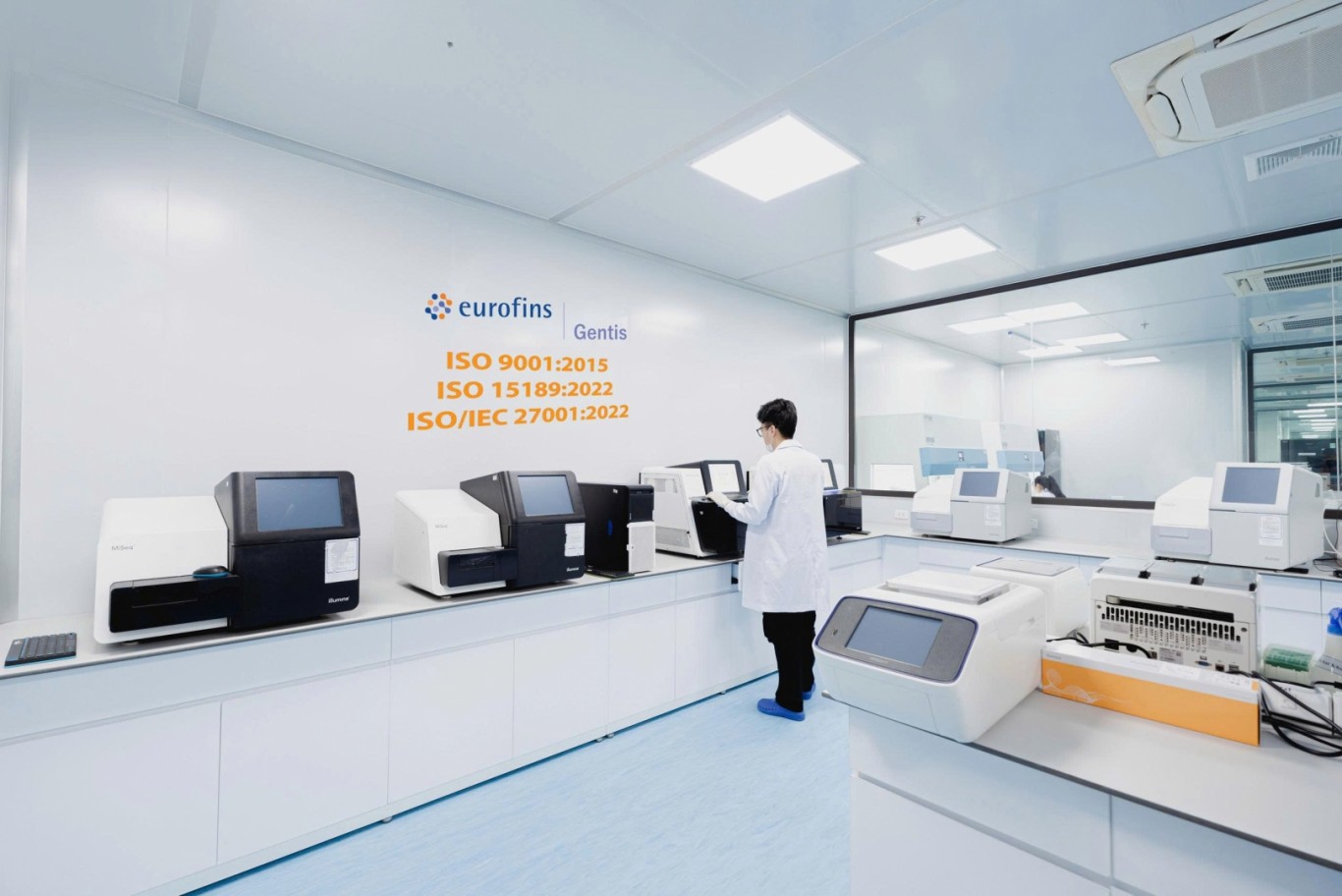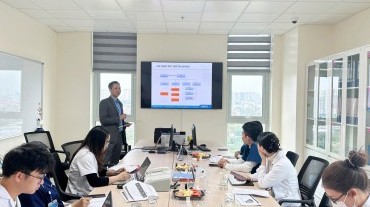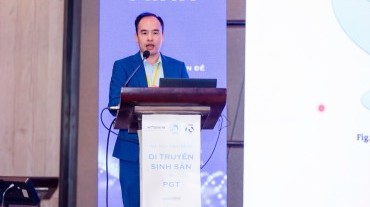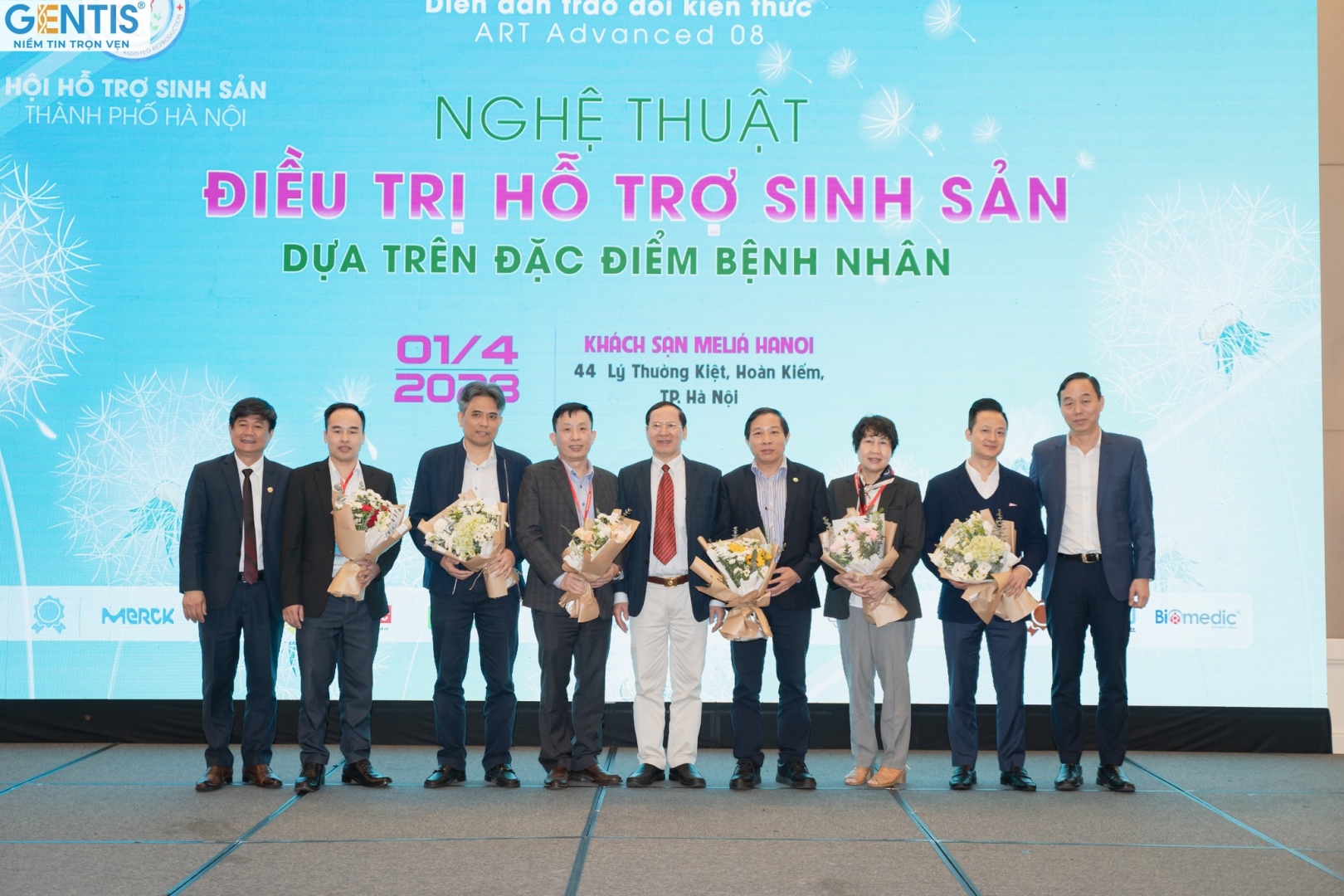
Following the success of a series of seminars organized by the Hanoi Society for Assisted Reproductive Medicine (HTSS), this ART Advance 08 knowledge exchange forum with the theme "The Art of Trait-Based Assisted Reproductive Therapy" patients” has attracted more than 250 leading experts and medical staff in the field of assisted reproductive technology. Under the chairmanship and management of Prof. TS.BS Nguyen Dinh Tao - Chairman of Hanoi HTSS Association, the workshop took place with 2 working sessions and 8 papers presented and discussed by experts. leading healthcare provider in the field of assisted reproduction and genetic testing in Vietnam.
In the morning session at the Workshop, Assoc. Prof. Dr. Nguyen Thanh Tung shared on the topic "Combining culture genetic analysis and embryo morphology in screening and evaluating embryo quality". Associate Professor Tung said that there are currently many studies proving the scientific and clinical basis of genetic screening tests before embryo transfer based on the embryo culture environment.

The assay for analyzing embryo culture is under intense research and development, providing an additional basis for genetic screening for embryos. The process of culturing and collecting culture samples for niPGT-A test plays a very important role, greatly affecting the test results, especially the removal of cells of maternal origin. Currently, GENTIS is the only pioneer in providing analytical testing of embryo culture medium (ASEM Test) with outstanding advantages such as:
• Provide information on chromosomal genetic status through analysis of embryo culture environment, combined with embryo morphological assessment to select transfer/storage embryos.
• Limiting invasive manipulations to the embryo helps to reduce concerns about the effect of biopsy on the embryo.
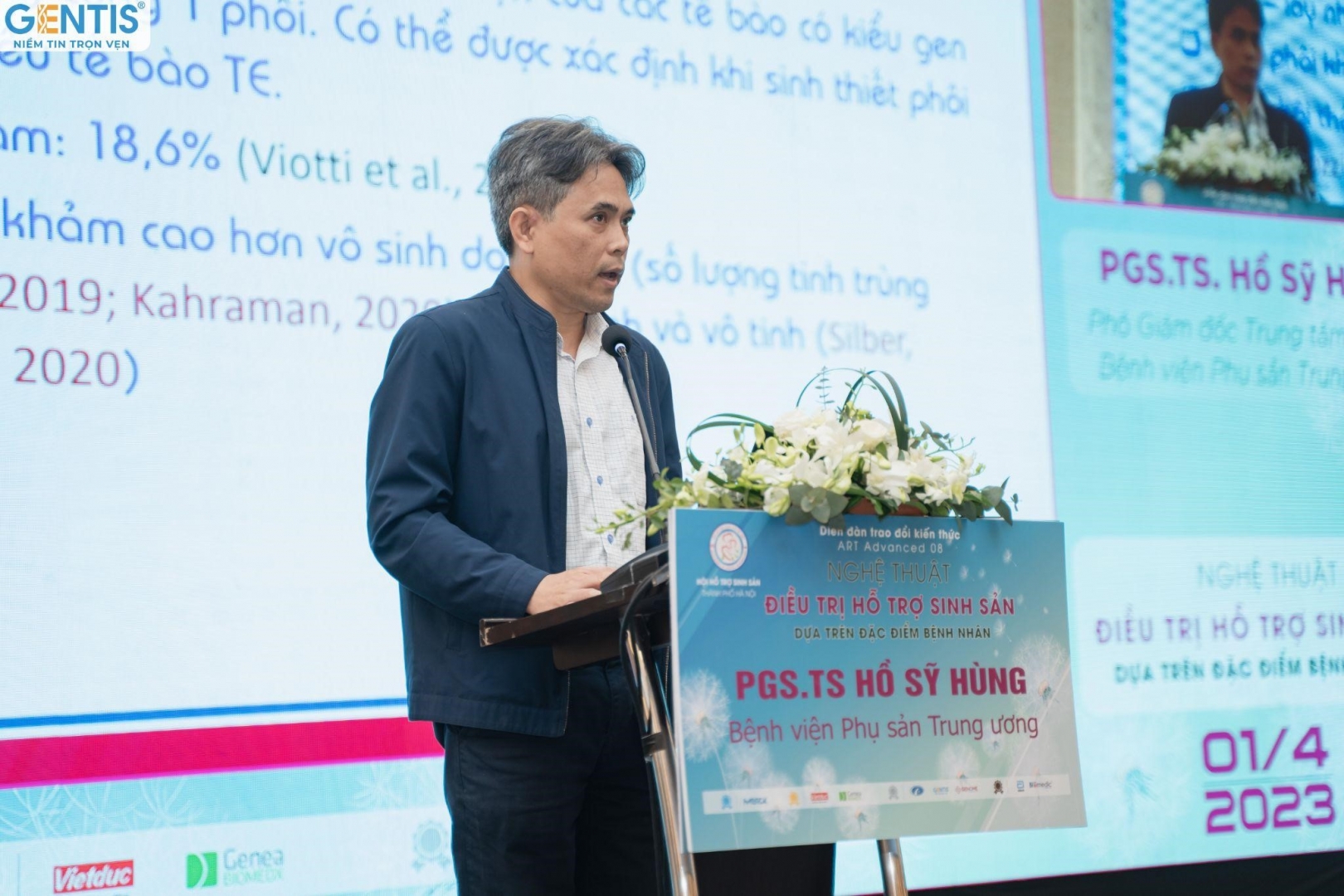
Next, Assoc. Prof. TS.BS Ho Sy Hung also had a report on "Mosaic embryo transfer: Updated guidelines and treatment". Associate Professor Ho Sy Hung shared: “The results of the mosaic embryos are part of the PGT-A results. According to the International Consortium for Preimplantation Genetic Diagnosis (PGDIS) 2021, embryos with high mosaicism may have an increased risk of adverse clinical outcomes compared with embryos with low mosaicism (limited data)
If the two embryos have similar mosaicism, then we will consider embryo selection based on embryo morphology, then consider the type of abnormality (preference is given to embryos with total chromosomal mosaicism, then partial chromosomal abnormalities, then partial chromosomal mosaicism)
In summary, mosaic embryo transfer has less effective clinical outcomes than haploid embryo transfer. We will always prioritize haploid embryo transfer and consider mosaic embryo transfer when there are no or no more normal embryos to transfer. If we have to decide to transfer mosaic embryos, we will choose embryos to transfer according to the following parameters: Embryos with low mosaicism, mosaic chromosomes (as recommended) and mosaic type.
PGT-A is one of the preimplantation genetic tests to help detect aneuploidy of 24 pairs of chromosomes and abnormality of chromosome structure at GENTIS, in case when the patient chooses to perform mosaic embryo transfer, the patient will be fully consulted by clinical geneticists regarding PGT-A results and possible clinical outcomes. The decision to transfer mosaic embryos will be made after careful consideration of the benefits, risks, and alternatives.

In addition, there is a report by Assoc. Prof. TS.BS Nguyen Quang on "Expanding the audience using the Sperm fragmentation test". Sperm fragmentation (PMTT) is damage to one or both strands of the DNA molecule in sperm, causing the DNA strand to split or break into small pieces. When the genetic integrity of sperm is affected, it results in effects on male fertility and is greatly related to reproductive planning.
SPossessing a complete set of tests in the field of male, GENTIS sperm fragmentation test uses SCSA method (the method is considered the gold standard in sperm DNA fragmentation assessment with high accuracy, process simple implementation, quick response time) direct quantification of sperm DNA fragmentation through Flow cytometry based on dye discoloration. It can be said that PMTT test is a very important test in determining the degree of sperm DNA fragmentation to find the cause of male infertility.
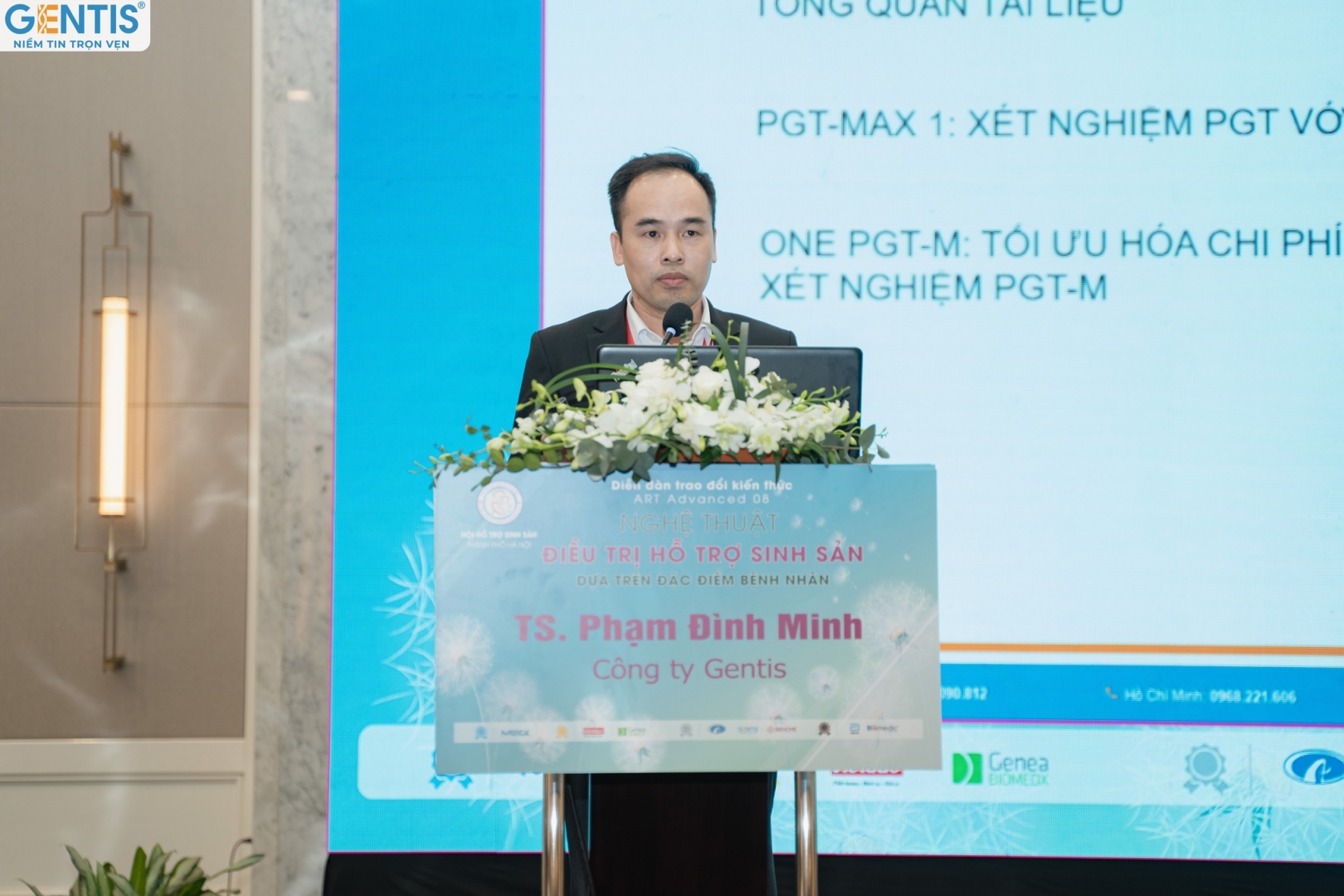
At the end of the morning session, Dr. Pham Dinh Minh - R&D Director of GENTIS Company had a detailed presentation through the report "Some new advances in PGT preimplantation genetic testing by new generation gene sequencing technology "NGS".
TThe afternoon session opened with the report "The role of FSH receptor gene analysis in the individualization of the stimulation dDr. Minh said: “Currently, GENTIS Company has had new approaches and breakthroughs in the treatment of infertility through the latest tests such as PGT MAX 1 test (high resolution PGT test, with outstanding advantages can detect additional microdeletions as small as 2Mb, associated with dangerous syndromes such as 1p36 and DiGeorge); One PGT-M test (is a PGT-M test combined with a PGT-A test, developed for common single-cell recessive diseases. The One PGT-M test uses 300-500 markers. SNP for linkage genetic analysis,...)".
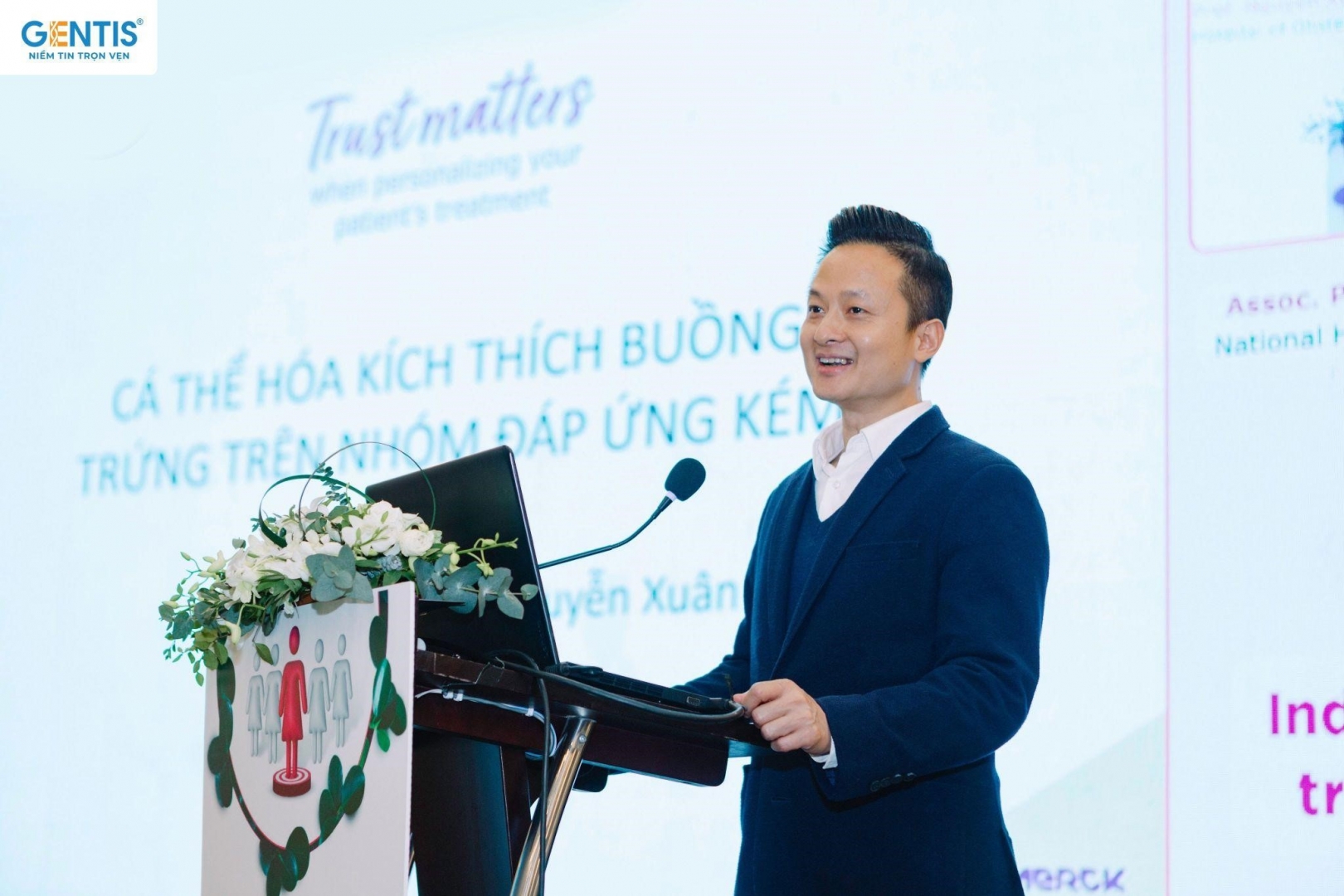
Prof. TS.BS Nguyen Xuan Hoi, which received much attention and appreciation from many people. PGS Hoi said that FSH receptor gene polymorphism test combined with other indicators (AMH, AFC, maternal age ...) is very helpful for doctors to personalize the ovulation regimen.
At GENTIS, testing for FSH receptor gene polymorphisms on 4 SNPs that have been shown to be associated with poor ovarian response is rs6165, rs6166, rs1394205, rs10835638. With only 2-3ml of whole blood sample stored in EDTA anticoagulant tube, using Sanger and NGS sequencing techniques on Miseq/Nextseq sequencer system and capillary electrophoresis machine, receptor gene polymorphism test GENTIS FSH will help the physician to come up with the most optimal and personalized ovarian stimulation regimen for each patient, helping to find the cause of poor ovarian response (POR). In the future, GENTIS will continue to research and optimize the gene polymorphisms related to ovarian hyperstimulation.
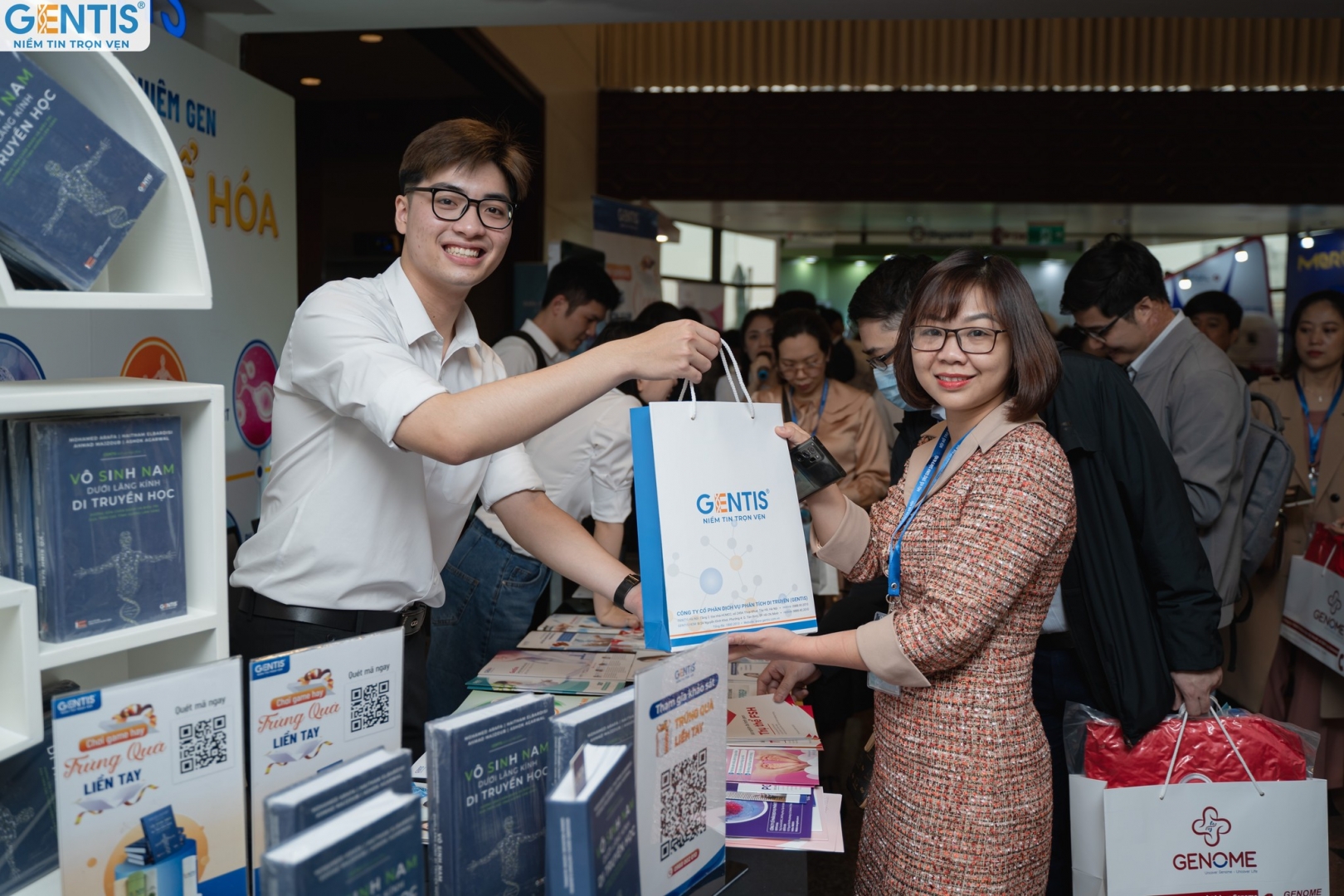
The seminar was lively, many questions were raised and discussed in the discussion section to help doctors gather more knowledge, get closer to methods as well as new perspectives on treatment. infertility in the world.
In addition to the reports within the conference framework, at the product display booth, GENTIS also had many other interesting gameshow activities with countless attractive gifts awarded. Here, doctors and specialists will be introduced to the latest testing services and consult the book "Male Infertility under the lens of genetics" compiled and published exclusively by GENTIS.
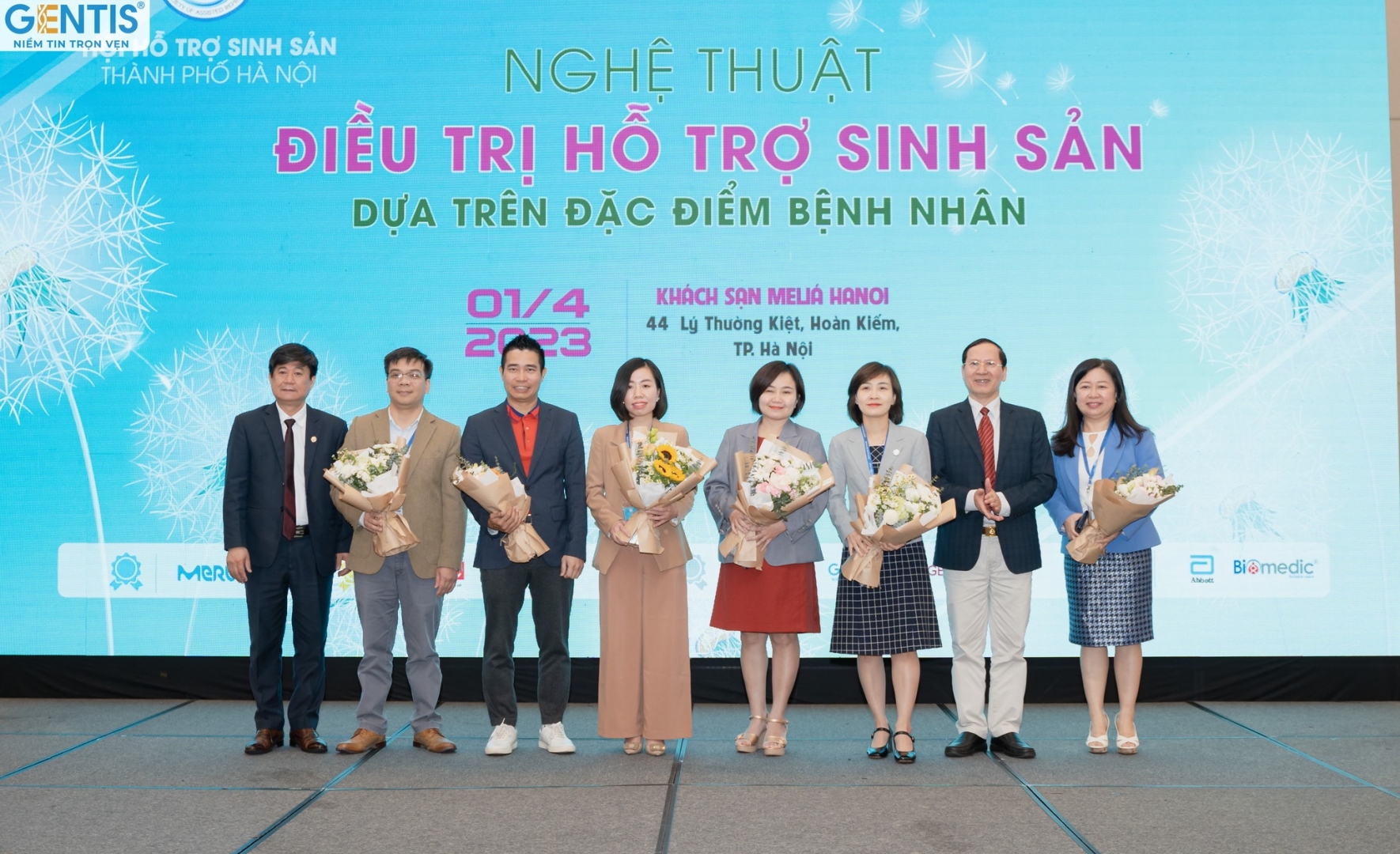
At the end of the seminar, Prof. TS.BS Nguyen Dinh Tao thanked the sponsors for accompanying the program and delegates from all over the country who attended the ART Advanced 08 scientific forum. Prof. TS.BS Nguyen Dinh Tao said that individualization of treatment is the use of treatment measures suitable to the pathological characteristics of each individual patient, the personalized strategy of treatment should be the standard clinical practice in assisted reproduction. That is, based on the "genomic map" of each person, we will use complex and delicate diagnoses to come up with an accurate treatment plan, suitable for each person's genetic characteristics, towards more effective treatment with fewer side effects. Therefore, individualizing the treatment to maximize the chances of success is essential and important!
GENTIS will also always strive to develop to bring the most advanced and safest testing technical solutions for the purpose of improving the physical and intellectual capacity of Vietnamese people. Once again, GENTIS would like to congratulate the ART Advanced Science Forum 08 on a great success and bringing useful knowledge to doctors and nurses across the country.

